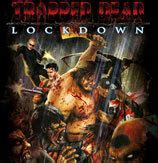sins of the father 合金裝備-sins of the father
論文大綱:sins of the father 合金裝備
第一部分:家族遺憾的延續(xù)
第二部分:人性的黑暗面
第三部分:倫理與道德的困境
第四部分:對(duì)未來(lái)的啟示
家族遺憾的延續(xù)
在《合金裝備》系列中,“sins of the father”一直是一個(gè)重要的主題。主要角色之一的大老板,作為游戲中最具有代表性的反派之一,其所犯下的罪孽不僅帶來(lái)了戰(zhàn)爭(zhēng)和沖突,也為自己的后代留下了沉重的精神包袱。大老板的行為不僅深深影響了他的子女,也牽動(dòng)著整個(gè)故事的發(fā)展。
- 大老板的罪孽主要體現(xiàn)在對(duì)他的子女的影響上。作為一個(gè)職業(yè)軍人和武器制造商,他在戰(zhàn)爭(zhēng)和沖突中造成了無(wú)數(shù)的傷亡和破壞。這些罪行不僅讓他的子女們陷入了極度的困境,也在他們的心靈深處留下了無(wú)法愈合的傷痕。
- 大老板的罪孽還體現(xiàn)在他對(duì)自己子女的教育和影響上。他的野心和冷酷導(dǎo)致了他的子女與其父親之間的疏離和沖突。這種家庭關(guān)系的緊張也進(jìn)一步加劇了整個(gè)故事的緊張和沖突。

人性的黑暗面
《合金裝備》系列深刻地揭示了人性的黑暗面。在戰(zhàn)爭(zhēng)和沖突中,人們?yōu)榱藱?quán)力和利益不擇手段,甚至背棄自己的良知和道德。大多數(shù)角色在游戲中都經(jīng)歷了種種考驗(yàn)和磨難,揭示了他們內(nèi)心深處的陰暗面。
- 游戲中的反派角色往往代表著人性的黑暗面。他們?yōu)榱诉_(dá)成自己的目的不惜一切代價(jià),無(wú)所畏懼地追求權(quán)力和利益。這種對(duì)權(quán)力的貪婪和對(duì)道德的漠視成為游戲中角色之間矛盾和沖突的根源。
- 主角們也不例外,他們?cè)趹?zhàn)斗和沖突中經(jīng)歷了人性的考驗(yàn)。他們不得不面對(duì)自己內(nèi)心的恐懼和矛盾,努力保持自己的良知和道德底線。這種對(duì)人性的探索和挑戰(zhàn)為整個(gè)故事增添了更多的層次和意義。
倫理與道德的困境
在《合金裝備》中,倫理和道德問(wèn)題是一個(gè)永恒的主題。人們?cè)趹?zhàn)爭(zhēng)和沖突中往往被迫做出艱難的抉擇,面對(duì)著生死存亡的考驗(yàn)。角色們不得不在倫理和道德的困境中掙扎,尋找自己內(nèi)心的答案。
- 游戲中的角色常常陷入倫理和道德的困境中。他們需要在戰(zhàn)斗和沖突中做出艱難的選擇,面對(duì)道德和利益之間的矛盾。這種倫理困境讓角色們更加真實(shí)和立體,也給玩家們提出了深刻的思考。
- 大老板的罪孽也體現(xiàn)了倫理和道德的困境。他在追求權(quán)力和利益的同時(shí),不得不面對(duì)自己內(nèi)心深處的良知和道德。他的決定和行為不僅影響著自己的命運(yùn),也影響著整個(gè)故事的發(fā)展。

對(duì)未來(lái)的啟示
《合金裝備》系列給玩家們帶來(lái)了對(duì)未來(lái)的啟示。在戰(zhàn)爭(zhēng)和沖突中,人類不僅面臨著生存的挑戰(zhàn),也需要面對(duì)自己內(nèi)心的恐懼和困惑。游戲中的角色們不斷挑戰(zhàn)自己的極限,探索未知的世界,為未來(lái)的世界帶來(lái)了新的希望。
- 游戲中的主角們?cè)趹?zhàn)斗和沖突中不斷成長(zhǎng)和進(jìn)化。他們通過(guò)不斷挑戰(zhàn)自己的極限,超越自己的恐懼和矛盾,為人類的未來(lái)帶來(lái)了新的希望。他們的勇氣和智慧啟示著玩家們,讓他們相信未來(lái)的世界會(huì)更加美好。
- 大老板的罪孽也給玩家們帶來(lái)了對(duì)未來(lái)的啟示。他的故事讓人們深思人類的未來(lái)和命運(yùn),反思自己的行為和選擇。他的悲劇告訴我們,只有通過(guò)不斷反省和挑戰(zhàn)自己,才能找到通往未來(lái)的道路。
總之,《合金裝備》系列通過(guò)揭示家族遺憾、人性的黑暗面、倫理與道德的困境以及對(duì)未來(lái)的啟示,為玩家們帶來(lái)了深刻的思考和啟迪。這些主題不僅展現(xiàn)了游戲的復(fù)雜性和深度,也讓玩家們?cè)谟螒蛑姓业搅藢?duì)生活和未來(lái)的新的啟發(fā)。愿《合金裝備》系列能繼續(xù)為玩家們帶來(lái)更多的驚喜和啟示。
Introduction
The concept of "sins of the father" has been a recurring theme in literature, philosophy, and psychology for centuries. This idea, often referred to as ancestral sin or generational curse, suggests that the actions and behaviors of one's ancestors can have lasting consequences for future generations. In this article, we will explore the implications of this concept and its impact on individuals and society as a whole.
The Origins of the Concept
The idea of sins of the father can be traced back to ancient religious texts and myths. In many cultures, there is a belief that the sins or transgressions of one's ancestors can be passed down through generations, affecting the lives of their descendants. This concept has been explored in various religious traditions, including Christianity, Judaism, and Hinduism.
- In Christian theology, the concept of original sin, stemming from Adam and Eve's disobedience in the Garden of Eden, is often cited as an example of how one generation's actions can have repercussions for all future generations.
- In Hinduism, the idea of karma suggests that individuals will inherit the consequences of their actions, both good and bad, in future lifetimes.
The Psychological Impact
Psychologists have also studied the concept of sins of the father in the context of intergenerational trauma. This term refers to the psychological effects of traumatic events experienced by one generation that are passed down to subsequent generations. For example, the children of Holocaust survivors may experience symptoms of trauma, even though they did not directly experience the horrors of the Holocaust themselves.
- Research has shown that trauma can be passed down through changes in gene expression and neurobiology, leading to increased risk of mental health issues such as anxiety, depression, and post-traumatic stress disorder.
- Therapeutic interventions, such as trauma-focused therapy and family therapy, can help individuals and families break the cycle of intergenerational trauma and heal from the effects of past trauma.

Social Implications
On a larger scale, the concept of sins of the father can also have implications for society as a whole. Historical injustices, such as slavery, colonization, and genocide, can have lasting effects on marginalized communities that continue to be felt generations later.
- Efforts to address these historical injustices, such as reparations, truth and reconciliation commissions, and educational initiatives, are essential for healing intergenerational wounds and promoting social justice.
- By acknowledging and addressing the sins of the past, we can work towards creating a more just and equitable society for future generations.
Breaking the Cycle

While the concept of sins of the father may suggest a deterministic view of inherited behavior and consequences, it is important to recognize that individuals have the power to break free from the patterns of the past and create their own destiny. Through self-reflection, therapy, and personal growth, individuals can overcome the burdens of their ancestral legacy and live more fulfilling and authentic lives.
- Forgiveness and compassion towards oneself and others are essential components of breaking the cycle of intergenerational trauma and healing from the sins of the father.
- By taking responsibility for our own actions and choices, we can create a positive legacy for future generations and contribute to a more hopeful and compassionate world.
Conclusion
The concept of sins of the father is a complex and multifaceted phenomenon that has profound implications for individuals, families, and societies. By understanding the psychological and social impact of intergenerational trauma, and taking proactive steps to break the cycle of inherited patterns, we can work towards creating a more just and equitable world for all. Ultimately, the power to transcend the sins of the past lies within each of us, as we strive to create a brighter future for ourselves and future generations.




















